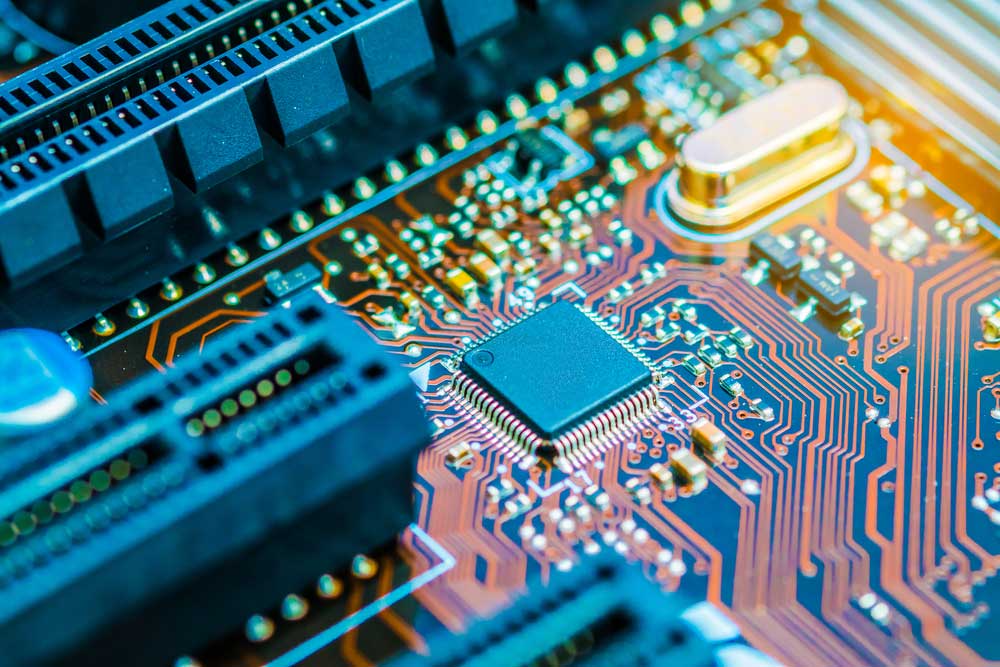Arduino boards are inexpensive open-source code microcontrollers that work on all operating systems. Also, it’s pretty easy to learn and works with many sensors. Additionally, Arduino has numerous free resources with any third-party library format. Plus, you don’t need an external programmer for this device. From the look of things, the Arduino is a powerful tool and a fantastic choice. But it has a few drawbacks, like its resolution, only 10 bits. As a result, engineers tend to look for Arduino alternatives that offer essential features lacking in the Arduino.
This article will highlight options suitable for IoT tools worth considering.
Let’s proceed!
11 Best Arduino Alternatives You Should Know
Teensy 3.6
Teensy 3.6 has 52 total outputs/inputs, 32-bit Arm processors, SD card reader, DAC, ADC, etc.
Besides this Dev board is available to hobbyists, it offers a Teensyduino software add-on. Therefore, this Arduino-compatible board can handle Arduino programs. So, it means that Teensy uses resources already in place.
Specification: 4 kB EEPROM, 256 kB RAM, 180-MHz Cortex M4F, 1 MB flash storage
Price: ~$30
Features: SD card reader, Teensyduino for Arduino IDE
The advantage over Arduino: it has more accuracy and processing power.
BeagleBoard PocketBeagle
The PocketBeagle runs Linux out of the box.
Also, you can program the development board via your web browser. But it’s on this list because the PocketBeagle is more like a multifunctional board. Indeed, this board passes for a computer rather than an Arduino alternative.
The board features a Sitara AM3358 ARM Cortex-A8. And it comes with two programmable real-time units (PRUs).
Also, these units are microcontrollers that connect to the central processor. In short, the PocketBeagle is the ultimate tiny machine for small projects that require computer resources.
Specification: 512 MB RAM, 1 GHz Cortex-A8
Price: ~$45
Features: 72 expansion pins, Linux operated, 2 PRUs, easy to program through a browser, SD connector
The advantage over Arduino: it has a more powerful processor.
SparkFun Thing Plus

The SparkFun Esp32 is an outstanding choice for their IoT board. The board features built-in Bluetooth Low Energy, Wi-Fi, and Bluetooth. Additionally, this board has a Li-Po connection with its wireless nature.
This board comes with an excellent suite of sensors and impressive specs. Moreover, the board is easy to program and compatible with the Arduino IDE.
Specification: 16MB flash storage, 240 MHz, 520 kB SRAM
Price: ~$23
Features: temperature sensor, Wi-Fi, capacitive touch sensor, BLE, Hall-effect sensor, Li-Po charger
The advantage over Arduino: it’s ideal for IoT projects and has more connectivity.
Seeeduino Nano
The Seeeduino Nano is a compact and cheap Arduino alternative similar to Arduino. Also, this board is compatible with Arduino Nano.
And the Seeeduino Nano features ATmega328P. In addition, this board is compatible with the Grove shield and numerous add-on module possibilities. In other words, you can use this professional platform for multi-projects.
Indeed, this board is a powerful tool. After all, it has high user satisfaction and excellent documentation. In addition, the Nano has a USB-C connector at a lower price than the Arduino boards.
Specification: 32 kB flash storage, 16 MHz, 2 kB SRAM
Price: ~$8
Features: USB type C, extra Grove 12C connector, fully compatible with Arduino Nano
The advantage over Arduino: the board comes at a lower price for the same features and high-quality experience.
Launchpad MSP430
This board has an MSP430, which is compatible with TI’s hardware and
So, if you want to do some MCU programming, the Launchpad is the perfect go-to as it permits onboard debugging. But if you prefer something more similar to Arduino, the board has an IDE called Energia that’s more user-friendly.
Specification: 32 kB Program FRAM, 4 kB RAM, 24 MHz MSP430
Price: ~$20
Features: Booster Pack compatible, Arduino-like IDE (Energia), board LED & two onboard buttons, Energy Trace Technology for low power
The advantage of Arduino: is they are cheaper. Also, the controllers can run at 16 MHz from their internal clock source without an external crystal.
Adafruit Feather Huzzah
Huzzah is a small board that can handle IoT device projects. Since the board is Esp8266, you can use it with NodeMCU Lua. In addition, the board is compatible with Arduino, built-in Wi-Fi, and a Li-Po charger.
When you compare this board to the Thing Plus, you’ll notice it’s a lesser version. And it’s because this Esp8266 is a predecessor to the Esp32. Interestingly, the board has had a large community of users since it has been around.
Hence, if you’re a hobbyist who needs collective experience from a large community, Huzzah is your board.
Specification: 8 MB flash storage, 80 MHz, 50 kB RAM
Price: ~$18
Features: Arduino compatibility, 9x GPIO pins, Wi-Fi, NodeMCU Lua, Li-Po charger
The advantage over Arduino: Huzzah makes communication relatively easy because of its seamless Wi-Fi connectivity.
STM32F3 Discovery
Do you want a board that allows you to try something different, like diving into an ecosystem? Then, it would help if you got the STM32F3. It features a 3D magnetic sensor, three-axis gyro, 10 LEDs, accelerometer, etc.
The drawback of this Arduino alternative is that it doesn’t have the compatibility you need. But the board has software tools that will help. Also, the manufacturer has a STM32Cube ecosystem with IDE and an initialization code generator.
Specification:256 kB flash storage, 48 kB RAM
Price: ~$22
Features: 3D magnetic sensor, motion sensor, two buttons, 3-axis accelerometer, 10 LEDs
The advantage over Arduino: STM32F3 has more significant flash memory and RAM.
Amica NodeMCU Esp8266
The Amica NodeMCU Esp8266 is the perfect option if you’re looking for a highly functional Arduino alternative board on a budget. The microcontroller is relatively tiny, and it features the Esp8266 chip.
The board offers an instant USB or computer connection and a voltage regulator. The NodeMCU is perfect for Wi-Fi-enabled IoT jobs. It works perfectly for Arduino IDE programming purposes and has a high rating thanks to its quality and reliability.
Specification: 64 kB SRAM, 4 MB flash storage, 80MHz
Price: ~$8
Features: Wi-Fi, External QSPI flash, compatible with Arduino IDE
The advantage over Arduino: Amica NodeMCU Esp8266 has a lower consumption.
SparkFun RedBoard Artemis
Designers created RedBoard Artemis to take on the Arduino Uno. Interestingly, the board meets up with Uno’s specs significantly. Further, the board has a similar form factor with 21 PWM, 24 GPIO, and Bluetooth.
RedBoard Artemis is compatible with the Arduino IDE. Also, it’s a deal-breaker for advanced users who want to debug their MCU as the board has an exposed JTAG connector. Plus, the board can run TensorFlow models.
Specification: 1 MB flash storage, 96 MHz turbo (48 MHz), 384 kB RAM
Price: ~$22
Features: Bluetooth, 24x GPIO, Arduino IDE compatibility
The advantage over Arduino: RedBoard Artemis has more functionality packed on its tiny 10×15 footprint.
Particle Photon
If you have a connected IoT project, the Particle Photon is worth considering. Thanks to the built-in Cypress Wi-Fi chip, the board has free connectivity with the Device Cloud. Furthermore, this board offers local IDE for microcontrollers, mobile SDKs with its web, and JavaScript.
Another feature that makes the Photon a good Arduino alternative is the guides, support, and tools it offers. Particle Photon is perfect for intermediate or newbie hobbyists who want an excellent board for simple IoT projects.
Specification: 1 MB flash storage, 128 KB memory, 120 MHz Cortex M3,
Price: ~$20
Features: numerous guides and references, Device Cloud, 18 GPIO, SDKs for ParticleJS and mobile.
The advantage over Arduino: Particle Photon’s ARM core offers much program space and processing power.
Silicon Labs Wonder Gecko
First off, the Wonder Gecko is an expensive board that’s not directly an Arduino alternative. But the board is on this list because it meets the required standard. The board features a 0.03F supercapacitor that backs up power, a touch sider, a micro LCD, an ambient light sensor, etc.
Even though the Wonder Gecko aims for a development process, it offers proper support like guides and references. Also, this board provides their Simplicity Studio, and it has variants that make great Arduino alternatives.
Specification: 256 kB flash storage, 48 MHz Cortex M4, 32 kB RAM
Price: ~$80
Features: energy monitoring system, Simplicity Studio, Integrated debugger, LCD, various sensors
The advantage over Arduino: Wonder Gecko has an advanced energy monitoring system and j-Link debugger that allows you to execute real-time application profiling.
FAQs
Can you use Raspberry Pi instead of Arduino?
It depends on your projects. For example, Raspberry Pi handles more complex applications, while Arduino is for quick electronics protocol and beginner projects.
What is cheaper than Arduino?
Esp8266 is cheaper than Arduino and packs a few additional features that make them stand out.
Final Words
Getting an Arduino alternative is an excellent first step, especially when working on advanced projects. In this article, we wrote a comprehensive list of great options you can choose based on your applications.
Did we miss out on some great alternatives? Do you have questions about any of the options listed? Please get in touch with us.




